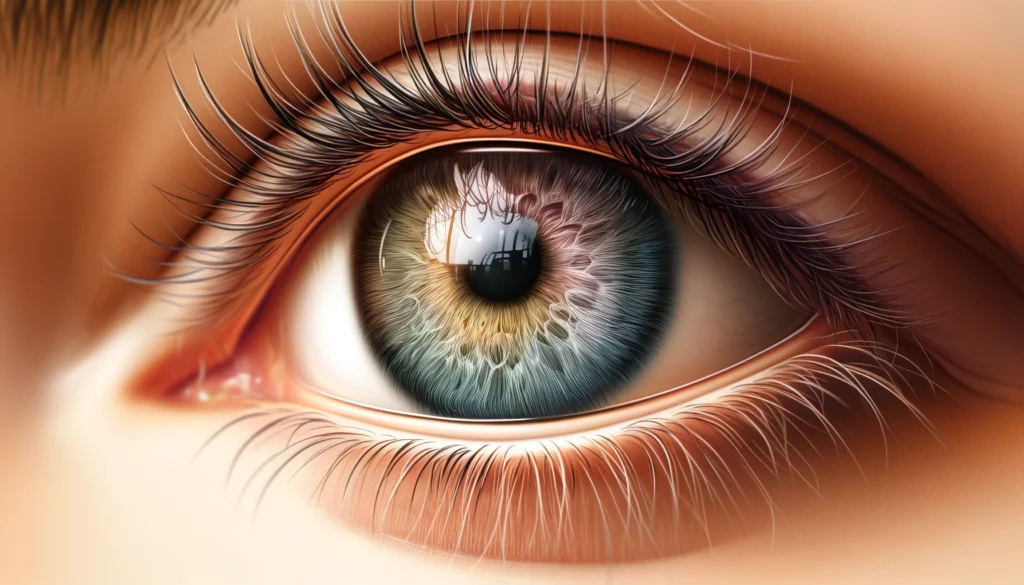Humans are visual creatures. More than 50% of the cortex, the surface of the brain, is used for processing visual information. It makes sense, then, that when something’s wrong in the brain, it also affects the vision. That’s exactly the idea behind a new study. In the study, researchers showed that a loss of visual sensitivity can predict dementia 12 years before it is diagnosed using conventional methods.

Dementia is a devastating condition that affects millions worldwide. It’s characterized by a decline in cognitive function beyond what might be expected from normal aging. It involves the loss of memory, language, problem-solving, and other thinking abilities severe enough to interfere with daily life. According to the World Health Organization, approximately 55 million people globally suffer from dementia, with nearly 10 million new cases each year.
Diagnosing dementia is not a straightforward task. The diagnosis usually involves a complex and lengthy process that requires a combination of medical history evaluation, physical examinations, and neuropsychological testing. Basically, doctors assess factors such as memory, language, problem-solving, and other thinking skills. However, since symptoms of dementia can overlap with those of other conditions (such as depression or vitamin deficiencies) distinguishing dementia is not easy. Advanced imaging technologies like MRI and PET scans are also employed to help rule out other causes of cognitive impairment, but these methods are expensive. For all these reasons, dementia is not easy to diagnose.
That’s why Eef Hogervorst, Professor of Biological Psychology at Loughborough University in the UK, started looking at eyes as a tool for diagnosis. The hypothesis was that people suffering from early stages of dementia would have some sign of visual degradation as well. So, they created an experiment to test this.
Looking into dementia
The newly developed test is remarkably simple.
“At the start of the study, we asked participants to take a visual sensitivity test. For the test, they had to press a button as soon as they saw a triangle forming in a field of moving dots. People who would develop dementia were much slower to see this triangle on the screen than people who would remain without dementia,” Hogervorst writes in an article on The Conversation.
When they paired this approach with standard memory tests and other procedures, they could detect dementia 12 years, on average, before the “official” diagnosis. The study was carried out on 8623 people from the EPIC-Norfolk Prospective Population Cohort Study, a prospective study aimed at gathering lifestyle and nutritional information from a very large number of people, repeated over time.
This finding is encouraging, but not entirely surprising. Previous studies suggested that eye tests can be used to diagnose Alzheimer’s. Alzheimer’s is the most common form of dementia. Visual issues have also been linked to amyloid plaques, one of the early symptoms (or possibly even the cause) of some forms of dementia. Researchers have also known that people with dementia may have more problems processing information about 3D objects and are more easily distracted by visual stimuli. All this points to a link between dementia and visual acuity. But, only now, researchers have found a way to leverage it.
Can eyes also fight dementia?
This also seems to hint that the eyes may also help us fight dementia. We don’t have a foolproof way to stop dementia at the moment, but we have a few clues about some things that work.
Having a longer education period seems to help, as does staying mentally active at work and in your day-to-day life. Even social connections have been linked to slower dementia progress. But if dementia and the eyes are so well-connected, couldn’t taking care of the eyes also fight dementia?
“Previous research on the matter is mixed, but some studies found that eye movement can improve memory. Perhaps that explains why we found that people who watch more TV and read more have better memory and less dementia risk than those who do not,” the researchers write.
“In other studies, eye movements from left to right and right to left done quickly (two eye movements per second) were found to improve autobiographical memory (your life story). However, some studies suggest this beneficial effect of eye movement only benefits right-handed people. We are not sure why this is.”
This is all very exciting, but for now, research into deliberate eye movements versus dementia is still only just beginning. We may soon be able to detect dementia, and possibly even manage it by focusing on the eyes — but there’s still a bit of science to do before we can achieve that.
The study was published in Scientific Reports.






